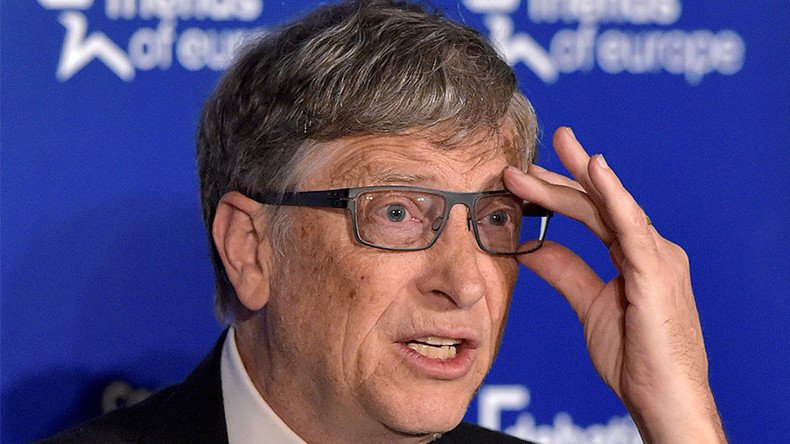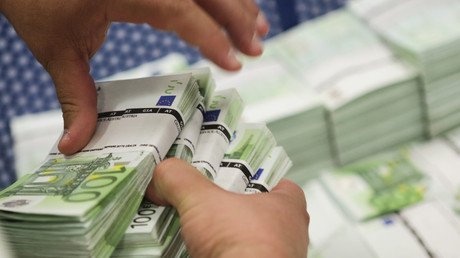US not rich enough to give away money for free - Bill Gates

Microsoft co-founder and philanthropist Bill Gates said it’s too early to dish out money to needy people, though the billionaire accepts the idea of universal basic income (UBI).
“Over time countries will be rich enough to do this. However we still have a lot of work that should be done - helping older people, helping kids with special needs, having more adults helping in education,” he said, responding to users’ questions during an Ask Me Anything session on Reddit.
UBI is an idea to provide people with a regular allowance regardless of their income or assets. The system can reportedly close gaps in equality, with an individual’s basic needs covered with free cash, funded by massive taxes at the top.
“Even the US isn't rich enough to allow people not to work. Some day we will be, but until then things like the Earned Income Tax Credit will help increase the demand for labor,” the billionaire stressed.
The Earned Income Tax Credit (EITC) is a form of levy charged to lower-income families in the US to boost savings, incentivize work and help people to escape poverty.
The idea of giving people money on a regular basis to increase social welfare has gained momentum in some countries in recent years. Basic income was initially proposed in the 1960s and briefly tried out in the US and Canada.
'Radical option': #India considers cash handouts to fight poverty https://t.co/WGHdqxJKhnpic.twitter.com/TxiMy8ksbn
— RT (@RT_com) February 7, 2017
Finland launched its own two-year long experiment on basic income in January. The country’s authorities randomly chose 2,000 recipients of social assistance and started paying them €560 a month per month. Canada and the Netherlands have also announced similar experiments.
READ MORE: Kiwis consider paying people for doing nothing
Last year, the Japanese government announced plans to issue money ‘vouchers’ for low-income young people to halt a significant decline in consumption within the age bracket. New Zealand is also debating UBI.
#BasicIncome: Japan considers giving away money to boost consumption https://t.co/LViQ5Olcjcpic.twitter.com/TFjPVVt00a
— RT (@RT_com) March 26, 2016
Aiming to reduce poverty India’s Finance Ministry is considering replacing the country’s welfare programs with a basic income.













